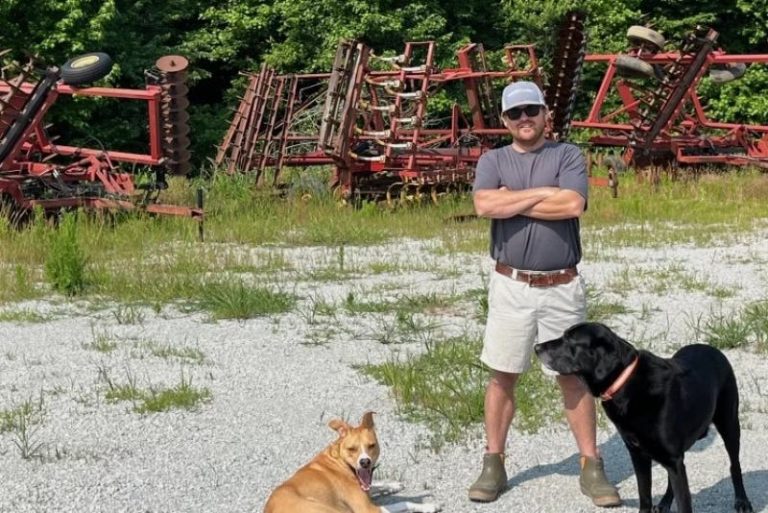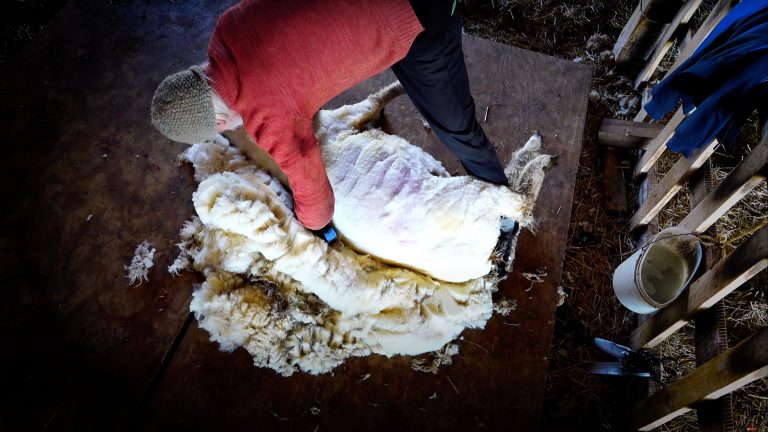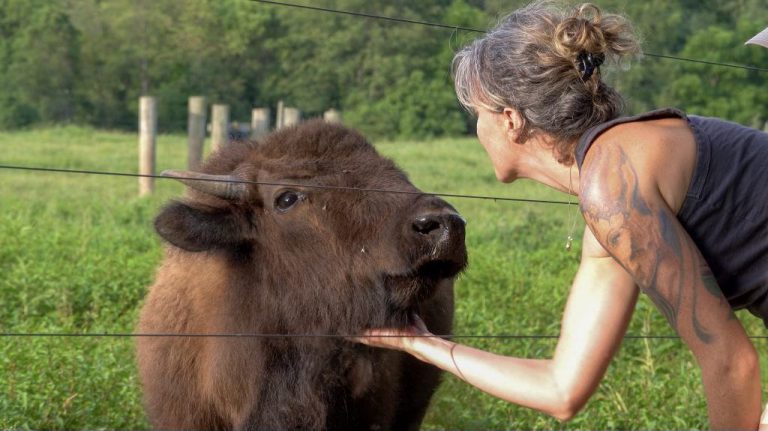Yanasa TV News
“I don’t make a $100,000… probably in my whole life.”
To be clear, laws must be respected for societies to function properly. But governments must not use the law as a weapon against its own citizens.
The abuse of power within Washington’s Department of Ecology can be described in one word “PREDATORY.”
This case is a sledgehammer on someone without resources to fight back. 20 days of irrigation vs. a lien that could wipe out his farm?
The state of Washington is weaponizing regulation against the defenseless.
An 85 year old farmer who’s family has been farming and irrigating their land since 1952, doesn’t understand the highly technical and bureaucratic system they have used to disproportionately fine him, lien his land, and attempt to take away his legacy, his life.
His family purchased the land in 1952, applied for a water right, and farmed continuously, that reliance matters. The family invested in the land, crops, and irrigation infrastructure under an assumption that the use was legitimate. To come in 70 years later and say, “you never had a right, so here’s $100,000 in fines” is punitive and dismissive of that lived reliance.
At the very least, the state should have provided clearer assistance and mediation rather than escalating fines against someone likely unable to navigate legal complexity. Washington law might technically support Ecology, but morally and politically, this is the kind of case that calls for legislative oversight, compassion, or even a negotiated settlement rather than financial ruin.

Opinion: Washington’s War on an 85-Year-Old Farmer
In Spokane County, Washington, an 85-year-old farmer named Harold Greiff is facing what amounts to financial execution for watering his fields. For 20 days of irrigation this summer, the Washington Department of Ecology slapped him with a $100,000 fine and a lien on his 69 acres of land. If he cannot pay—or successfully appeal—he could lose the property his family purchased in 1952.
Yes, you read that correctly: nearly three quarters of a century of continuous farming and irrigation, and the state has decided he was never entitled to water his crops.
A sledgehammer on the defenseless
Greiff’s story is not about reckless overuse, pollution, or willful defiance. It is about a man who, as he tells it, inherited his father’s irrigation practices—his father filed an application for water rights when the family bought the land in 1952, and they farmed continuously ever since. For decades, no one challenged that use.
Now, in his mid-80s, Greiff is expected to navigate Washington’s arcane and technical water law system, a maze of permits, claims, adjudications, and statutory deadlines that even specialized attorneys struggle to interpret. He has no lawyer, no financial resources, and no realistic way to fight back.
Contrast that with how the federal government treated President Joe Biden, himself in his 80s, when he was accused of mishandling classified documents. The special counsel wrote Biden off as a “well-meaning, elderly man with a poor memory”—too clueless to prosecute. Washington state’s officials applauded that conclusion. But when one of their own elderly farmers shows confusion in the face of bureaucracy, the state doesn’t show compassion—it brings a sledgehammer.
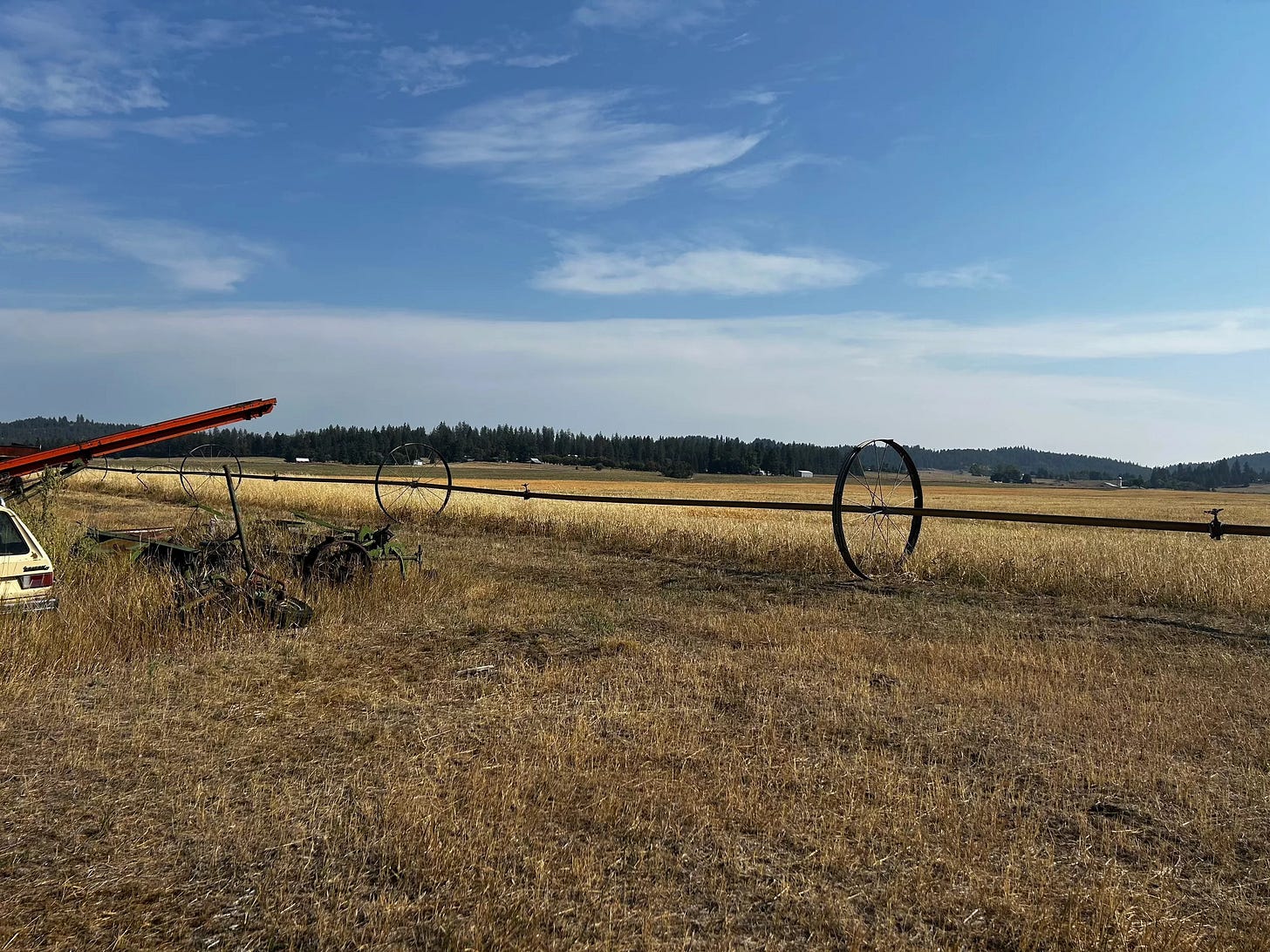
The Department of Ecology’s case
To be fair, the Department of Ecology has the law on its side—at least on paper. Washington operates under a permit system: you cannot lawfully irrigate without a recognized water right. Ecology says Greiff’s father never perfected his 1950s application, and that later transfer applications lacked required information. They say Greiff ignored a 2023 cease-and-desist order and smaller fines in 2024 ($6,000 in May, $15,000 in June).
From Ecology’s perspective, this is a clear case of unpermitted use: if exceptions are made, the rule of law collapses, especially in a state with over-allocated watersheds. Under RCW 90.14, water rights not perfected or used properly can be relinquished. And Ecology has authority to escalate fines for non-compliance.
On the books, it looks like a clean enforcement action.
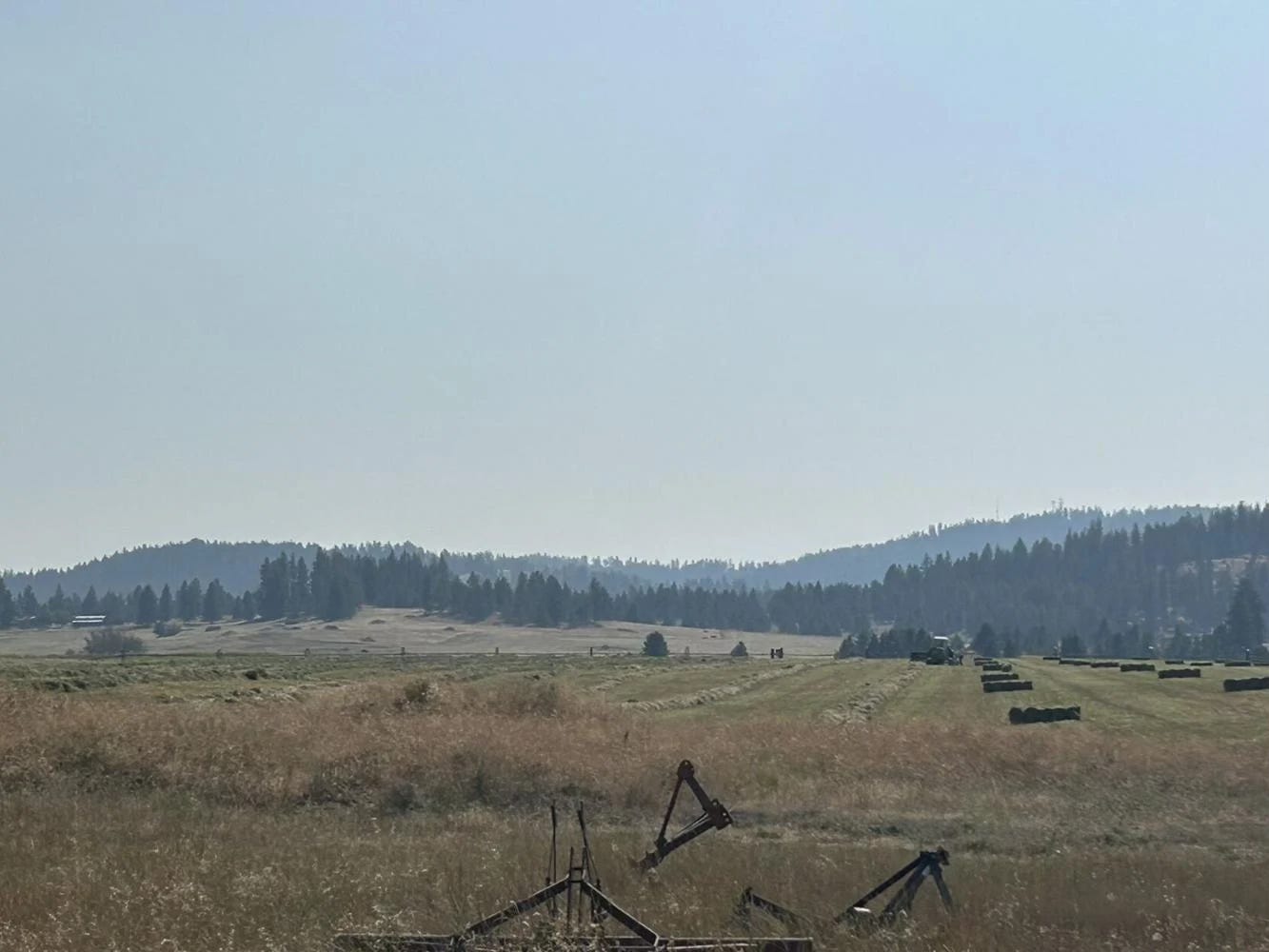
On the ground, it looks predatory
But on the ground, to neighbors and fellow farmers, this isn’t law—it’s bureaucratic predation. We’re not talking about a corporation siphoning a river dry. We’re talking about 20 days of irrigation, and an old man still growing hay.
This is the same Washington where Whatcom County farmers were dragged into sweeping water rights adjudications that threaten to extinguish generational uses on a technicality. Where the Legislature had to scramble in 2025 to give family farms a “lifeline” so they wouldn’t be shut out of court entirely. Where 3,700 farms disappeared in just five years, under the weight of economic pressure, regulation, and land conversion.
It is part of a pattern: the state talks sustainability, but its enforcement routinely lands hardest on those with the least ability to defend themselves.
His options—thin but real
Greiff does have legal options, though few he can afford. He can appeal to the Pollution Control Hearings Board, arguing that his family’s continuous beneficial use should be recognized, that relinquishment never applied, and that penalties are disproportionate. He might raise equitable defenses—estoppel, reliance on state tolerance for decades, procedural flaws in notices.
But appeals require lawyers, experts, and money. He has none. Without outside support, the odds are stacked against him.
The bigger question
Is this really what government is for? Is the purpose of the Department of Ecology to confiscate the land of an 85-year-old farmer, or to ensure Washingtonians have clean, fair access to water? Is justice served when a man who farmed honestly for 70 years is crushed because his father’s paperwork never cleared?
The state will argue that the law must be enforced. But law without compassion, without context, without proportionality—becomes tyranny.
Greiff’s land is his legacy. His only wealth. To reduce it to collateral in a bureaucratic enforcement action is not regulation—it is cruelty. Washington’s leaders cannot claim to protect citizens if they destroy the most defenseless among them.
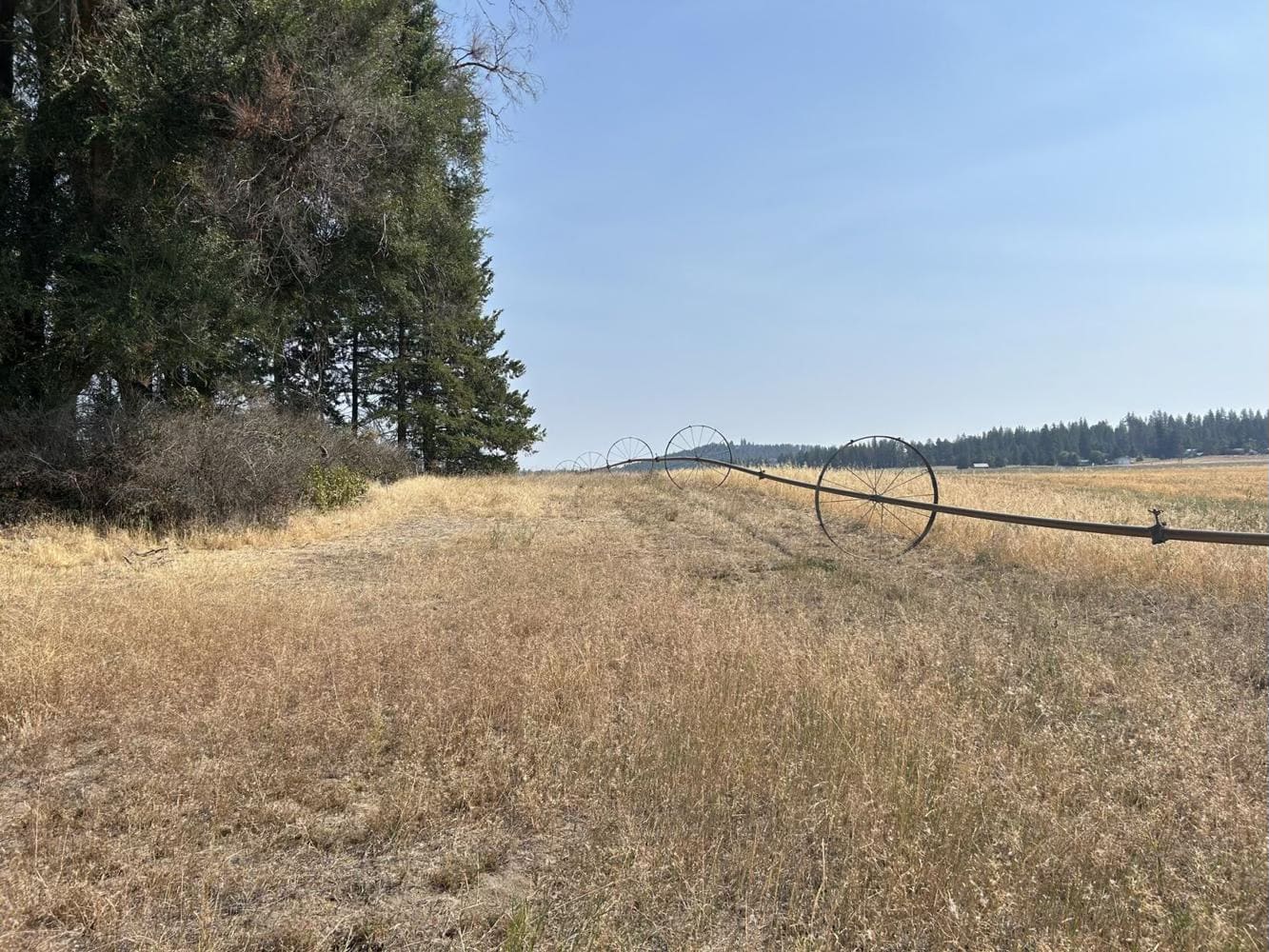
In most cases, water rights and water enforcement fall under state jurisdiction, not federal. But there are a few potential levers where USDA or the federal government could get involved if the situation escalates.
Civil Rights & Equity Reviews
USDA has authority to review whether state-administered agricultural or conservation programs are being carried out in ways that discriminate or disproportionately burden certain groups (e.g., elderly, disadvantaged farmers). If Washington’s enforcement appears arbitrary and targeted, USDA’s Office of Civil Rights should open an investigation. This is not the first time generational farms have been targeted by the State of Washington this year, disproportionately targeting elderly farmers for their water rights.
Farm Bill & Program Conditions
Many farms rely on federal programs (crop insurance, EQIP, disaster relief). USDA sometimes ties program eligibility to land-use status. Political pressure should come from Congress to condition program funding on states not enforcing predatory practices.
Political Oversight / Pressure
USDA Secretary Brooke Rollins (or any sitting Secretary) can raise public pressure. Secretaries often intervene rhetorically, even if they lack direct legal authority, as we saw when Rollins flagged the Potter Valley water crisis in California and the Henry Farm Eminent Domain Case earlier this year. That can force governors or legislatures to take a second look.
DOJ / Federal Courts
If a farmer argued his constitutional rights were violated (takings without just compensation, due process violations, or equal protection issues), it could rise into federal court. The DOJ would have standing to weigh in. This is a high bar, but not impossible.
Washingtons War on Family Farms
What Robert is experiencing is part of a much larger, troubling trend in the State of Washington, a war on family farms. As I detailed in a previous Yanasa TV article, Washington is aggressively targeting family farms across the state Breaking the Harvest: How Washington’s Farm Losses Reveal a National Crisis of Policy, Consolidation, and Rural Mental Health
Washington has shed more than 3,700 farms in just five years—roughly two operations a day. The number comes from the USDA’s 2022 Census of Agriculture and lands alongside a sobering state finding: agricultural workers die by suicide at far higher rates than the general population. Together, the numbers trace a pressure system where policy costs outpace margins, markets consolidate, and people—farmers, families, hired crews—are the ones bearing the load.
- Whatcom/Nooksack adjudication—legislative “lifeline” for longtime users: Farm groups argued that very old farm uses were at risk of being shut out of court unless the Legislature fixed filing mechanics; in June 2025 they celebrated Olympia’s relief for longtime users so they could be heard in adjudication rather than shut out on a technicality. Whatcom Family Farmers
- Pattern of farm enforcement cases: Ecology has publicized other irrigation-without-right fines (e.g., Whatcom County farm fined $12,000 in 2023), showing the agency does pursue ag users—fueling perceptions that the process hits family farms hardest. Washington State Department of Ecology
- Advocacy documenting “quagmire” for farmers: Save Family Farming has criticized the state’s role in creating a legal maze around water rights in Whatcom, arguing the state should facilitate solutions instead of trapping legacy users in litigation. (It’s advocacy, but it captures the fairness narrative you’re raising.) savefamilyfarming.org
- Wider pressure on small farms: Reporting notes Washington lost 3,700+ farms in five years, with lawmakers pointing to regulatory burdens including water rights rules—context that makes six-figure penalties on an 85-year-old look predatory to the public. thereflector.com






